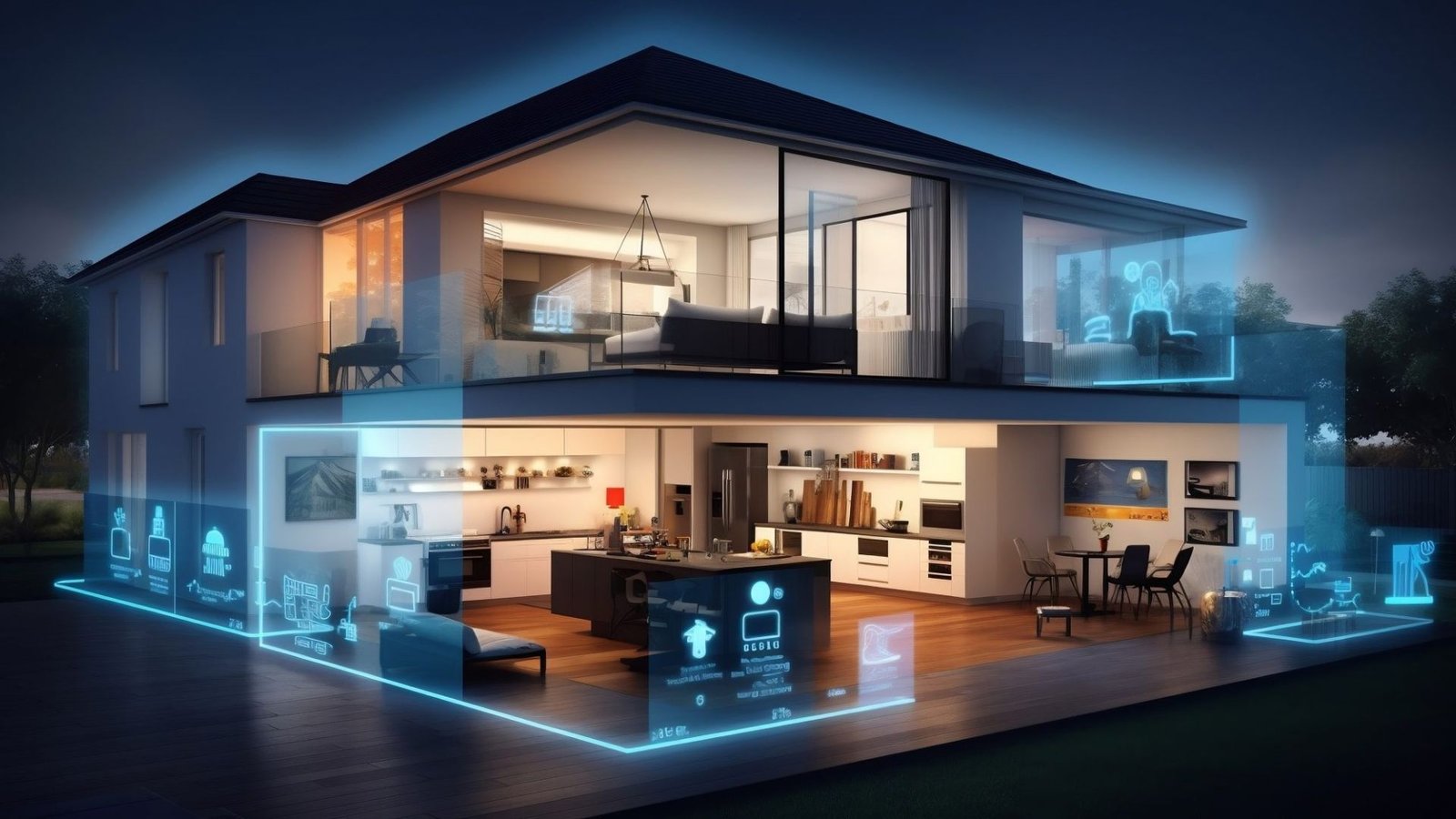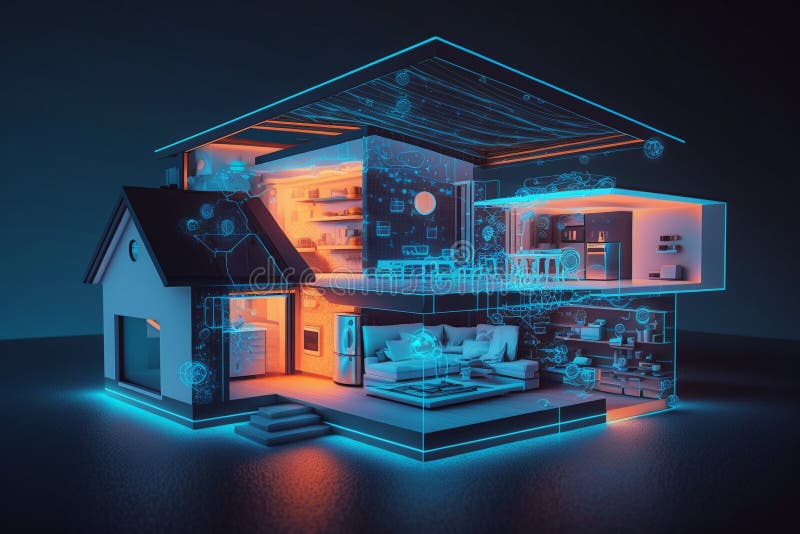Smart home technology in Bellevue WA has become a game-changer for residents who want to enhance their living experience with innovative solutions. This city, known for its forward-thinking approach to technology, is now embracing smart home systems that make daily life easier, more secure, and energy-efficient. From voice-activated assistants to automated lighting, homeowners in Bellevue are discovering the countless benefits of integrating smart technology into their homes.
Bellevue's growing interest in smart home solutions reflects the global trend toward automation and connectivity. According to a report by Statista, the global smart home market is projected to reach $135 billion by 2025. This growth highlights the increasing demand for convenience and efficiency in residential spaces. Whether you're a tech enthusiast or simply looking to upgrade your home, smart home technology offers something for everyone.
In this article, we'll explore the world of smart home technology in Bellevue WA, covering everything from the basics to advanced systems. You'll learn about the benefits, key components, and how to get started with your own smart home setup. Let's dive in and discover how you can transform your living space into a cutting-edge smart home.
Read also:Chewy Snacks The Ultimate Guide To Enjoying Healthy And Delicious Treats
Table of Contents
- Introduction to Smart Home Technology
- Benefits of Smart Home Technology
- Key Components of Smart Home Systems
- Smart Home Technology in Bellevue WA
- Installation Process
- Cost Considerations
- Security Features of Smart Homes
- Energy Efficiency and Sustainability
- Popular Smart Home Devices
- Future Trends in Smart Home Technology
Introduction to Smart Home Technology
Smart home technology refers to the integration of various devices and systems within a home that can be controlled remotely or automatically. These devices are connected via the internet, enabling homeowners to monitor and manage their homes from anywhere. Whether it's adjusting the thermostat, locking doors, or turning off lights, smart home systems provide unparalleled convenience and control.
For residents in Bellevue WA, adopting smart home technology means leveraging the latest advancements in automation and connectivity. This city's tech-savvy population is well-positioned to benefit from these innovations, as they align with the region's emphasis on modern living solutions.
Some of the most common smart home devices include smart thermostats, security cameras, doorbells, lighting systems, and voice assistants like Amazon Alexa and Google Assistant. Each device serves a specific purpose, but when combined, they create a cohesive smart home ecosystem.
How Smart Home Systems Work
- Devices are connected through Wi-Fi or Bluetooth.
- Users can control devices via mobile apps or voice commands.
- Automation rules can be set up for scheduled tasks, such as turning off lights at night.
Benefits of Smart Home Technology
Smart home technology offers numerous advantages that enhance the quality of life for homeowners. By automating everyday tasks, these systems save time, increase security, and promote energy efficiency. Let's explore the key benefits:
Convenience
One of the most appealing aspects of smart home technology is the convenience it provides. With a single tap on your smartphone or a voice command, you can control multiple devices in your home. For example, you can adjust the thermostat, lock your doors, or check your security cameras while you're away.
Security
Smart home security systems offer peace of mind by monitoring your home 24/7. Features such as motion sensors, smart locks, and video doorbells allow you to keep an eye on your property and respond quickly to potential threats. According to a study by the University of North Carolina, homes with visible security systems are 300% less likely to be burglarized.
Read also:Glendale Police Department A Comprehensive Guide To Law Enforcement And Community Safety
Energy Efficiency
By automating lighting and climate control, smart home technology helps reduce energy consumption. Smart thermostats, for instance, learn your habits and adjust the temperature accordingly, saving you money on utility bills. Similarly, smart lighting systems can be programmed to turn off when rooms are unoccupied, further conserving energy.
Key Components of Smart Home Systems
A typical smart home system consists of several components that work together to create a seamless user experience. These components include:
Smart Thermostats
Smart thermostats, such as the Nest Learning Thermostat, allow homeowners to control their heating and cooling systems remotely. These devices can also learn your preferences and optimize energy usage based on your habits.
Smart Lighting
Smart lighting systems enable you to adjust the brightness, color, and schedule of your lights. Brands like Philips Hue and LIFX offer a wide range of customizable options, making it easy to create the perfect ambiance in any room.
Security Cameras
Smart security cameras provide real-time video footage of your home, allowing you to monitor activity from anywhere. Many models also offer features like motion detection, night vision, and two-way audio communication.
Smart Home Technology in Bellevue WA
Bellevue WA is at the forefront of smart home adoption, thanks to its tech-savvy population and proximity to major tech companies like Microsoft and Amazon. Homeowners in this area are increasingly investing in smart home systems to enhance their living experience.
The city's commitment to innovation and sustainability aligns perfectly with the goals of smart home technology. By embracing these solutions, Bellevue residents can enjoy the benefits of modern living while reducing their environmental impact.
Local Installation Services
Several companies in Bellevue specialize in smart home installations, offering personalized solutions to meet the unique needs of each homeowner. These services typically include consultation, design, installation, and ongoing support to ensure your system runs smoothly.
Installation Process
Installing a smart home system involves several steps, from planning and design to setup and configuration. Here's a breakdown of the process:
Step 1: Assessment
A professional installer will assess your home to determine the best devices and layout for your needs. This step ensures that the system is tailored to your specific requirements.
Step 2: Design
Once the assessment is complete, the installer will create a design plan outlining the placement of devices and the overall system architecture.
Step 3: Installation
The actual installation process involves setting up the hardware and connecting it to your home's network. This step may require some wiring, depending on the devices being installed.
Step 4: Configuration
After installation, the devices must be configured and connected to your smartphone or voice assistant. This step ensures that all components work together seamlessly.
Cost Considerations
The cost of a smart home system varies depending on the devices and services chosen. On average, homeowners can expect to spend between $500 and $5,000 for a complete setup. Factors influencing the cost include:
- Number of devices
- Type of devices
- Professional installation fees
- Ongoing maintenance and subscription costs
Security Features of Smart Homes
Smart home security systems offer a range of features designed to protect your property and loved ones. Some of the most popular features include:
Smart Locks
Smart locks allow you to lock and unlock your doors remotely, as well as monitor who enters your home. Many models also support keyless entry using codes or biometric authentication.
Video Doorbells
Video doorbells provide a convenient way to see who's at your door, even when you're not home. They often include features like two-way audio communication and motion detection.
Surveillance Cameras
Smart surveillance cameras offer live video streaming, motion detection, and cloud storage for recorded footage. These devices provide an extra layer of security by allowing you to monitor your home from anywhere.
Energy Efficiency and Sustainability
Smart home technology plays a crucial role in promoting energy efficiency and sustainability. By automating lighting and climate control, these systems help reduce energy consumption and lower utility bills. Additionally, many smart devices are designed with eco-friendly features, such as energy-efficient sensors and programmable schedules.
According to the U.S. Department of Energy, smart thermostats can save homeowners up to 10% on heating and cooling costs annually. This savings, combined with other smart home features, makes it an attractive option for environmentally conscious homeowners.
Popular Smart Home Devices
Here are some of the most popular smart home devices available today:
Amazon Alexa
Amazon Alexa is a voice-activated assistant that allows you to control various smart home devices with simple voice commands. It also supports a wide range of skills, from playing music to ordering groceries.
Google Nest
The Google Nest ecosystem includes smart thermostats, cameras, and doorbells, all controlled through the Google Home app. These devices integrate seamlessly with other Google services, such as Gmail and Google Calendar.
Ring Doorbell
The Ring Video Doorbell offers advanced security features, including HD video, motion detection, and two-way audio communication. It's a popular choice for homeowners looking to enhance their home security.
Future Trends in Smart Home Technology
The future of smart home technology looks promising, with advancements in artificial intelligence, machine learning, and IoT expected to drive innovation. Some emerging trends include:
AI-Powered Assistants
AI-powered assistants will become more intuitive, learning your preferences and anticipating your needs before you even ask. This will result in a more personalized and seamless user experience.
Integration with Wearables
Smart home systems will increasingly integrate with wearable devices, such as smartwatches, to provide real-time health monitoring and personalized recommendations.
Sustainability Focus
As climate change becomes a growing concern, smart home technology will continue to prioritize energy efficiency and sustainability. Future devices will focus on reducing energy consumption and promoting eco-friendly practices.
Conclusion
Smart home technology in Bellevue WA offers homeowners a wide range of benefits, from convenience and security to energy efficiency and sustainability. By integrating these innovative solutions into your home, you can enjoy a more connected and comfortable living experience. Whether you're looking to automate everyday tasks or enhance your home's security, there's a smart home system to suit your needs.
We encourage you to take the first step toward transforming your home into a smart home. Start by researching the available devices and services, and consider consulting with a professional installer to ensure a seamless setup. Don't forget to share your thoughts and experiences in the comments below, and explore our other articles for more tips and insights on smart home technology.

